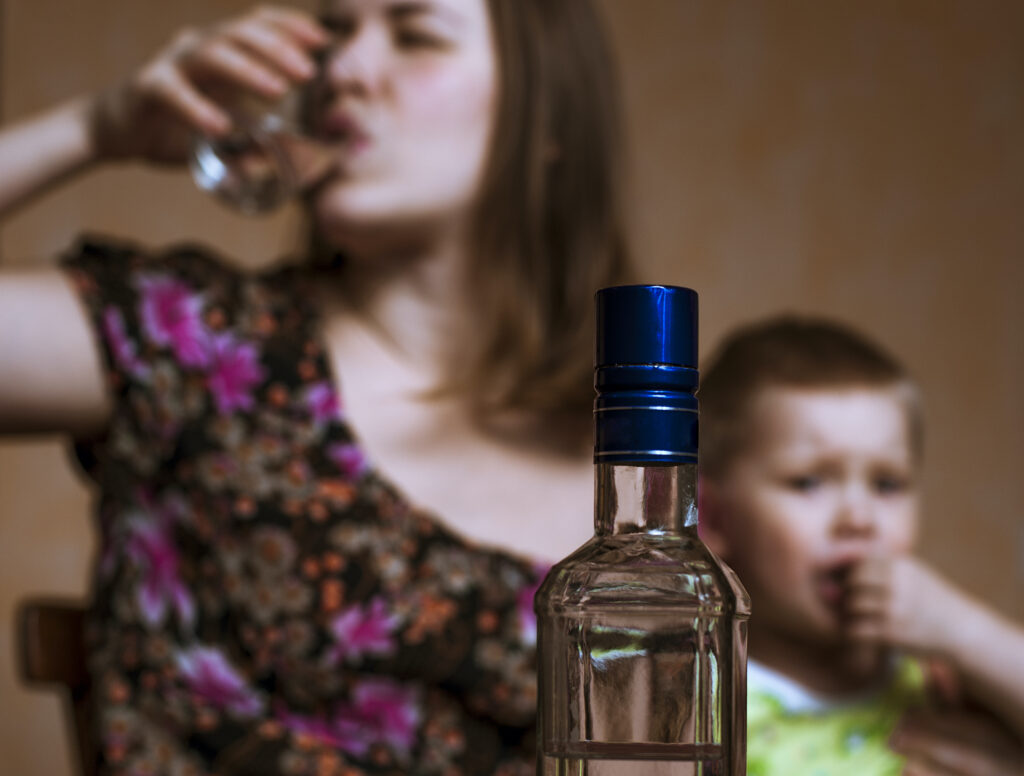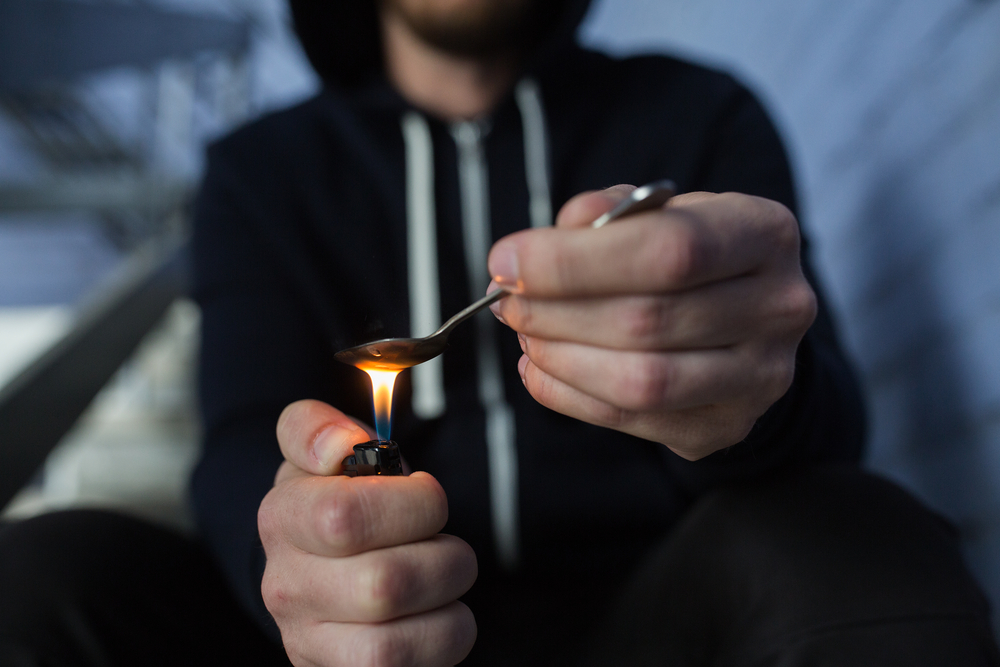
Children of parents who use illicit drugs and/or are problematic alcohol users are at an increased risk of adverse life experiences and poor outcomes. These children are more likely to experience hospitalisation in their early life (Raitasalo & Holmila, 2017), as well as childhood mental health problems (Ohannessian, 2012). They are also significantly more likely to engage in early-onset substance use (Malone et al., 2002) and to develop mental disorders and substance use disorders in adulthood (Yoon et al., 2013).
It is difficult to estimate the number of children living with parents who are problematic substance users, likely due to stigma around parental substance use and the risk of involvement from social services. A report by Manning and colleagues (2009) states that since national statistics on parental substance use (ACMD, 2003; AHRSE, 2004) are extrapolated from treatment data they likely underestimate the true number. They estimate that over 14% of infants in the UK are exposed to problematic drinking or illicit drug use by a parent.
Psychosocial interventions for substance use are defined as therapeutic interventions that not only target the primary symptoms, but also consider the person’s situation from a societal and familial perspective. Some examples include family therapy, motivational interviewing, and parent skills training. This review by McGovern and colleagues (2021) assesses the effectiveness of psychosocial interventions in reducing parental substance use.

It’s estimated that in the UK, 14% of infants are exposed to problematic drinking or drug use by a parent, which can increase their risk of adverse life experiences and poor mental health outcomes.
Methods
The study authors conducted a review of randomised controlled trials (RCTs) of psychosocial interventions for parents of children under the age of 21 who use substances. This included the use of illicit drugs and problematic alcohol use.
They completed a thorough search on several major research databases for relevant studies. Studies included were required to have a minimum follow-up period of six months from the start of the intervention, so that the authors could assess both short term (6-11 months) and longer-term (12+ months) impacts of the interventions.
A risk of bias assessment was conducted using the Cochrane Handbook for Systematic Reviews of Interventions (Higgins, 2011). This allowed authors to evaluate whether the studies included in the review may overestimate or underestimate the true effect of the intervention. The GRADE system (Guyatt et al., 2008; Guyatt et al., 2011; Oxman, 2004) was also used to assess the quality of the evidence.
The primary outcome of this review was a reduction in the frequency of parental substance use. This was defined as a reduction in the frequency of heavy drinking (5+ units) episodes, or in the frequency of illicit drug use, from the start of the intervention to the follow-up assessments.
The researchers were also interested in several secondary outcomes related to parental substance use such as dependence/disorder symptomology, and child welfare such as incidents of maltreatment, abuse, or neglect.
Results
22 studies with a total of 2,274 adult participants were found to meet the relevant criteria and were included in the review. Most of the studies targeted patients who met the diagnostic criteria for substance dependence, and the majority of participants were heroin or cocaine users.
The included studies broadly covered three types of interventions:
- Interventions targeting parenting skills only
- Interventions targeting alcohol and drug use only
- Interventions targeting alcohol and drug use & parenting skills together in an integrated intervention
A variety of interventions were examined, ranging from cognitive behavioural therapy (CBT) to parent skills training. Most of the interventions were delivered to mothers, and the majority were conducted in the USA. Most studies were considered to have a low or unclear risk of bias.
The authors found moderate-quality evidence for a treatment effect of a reduction in the frequency of parental substance use. Studies suggested that psychosocial interventions were more effective than control conditions at both short-term (6-month) and long-term (12-month) follow-ups. Integrated interventions which targeted both substance use and parenting skills were found to be more effective in reducing parental substance use than interventions targeting substance use or parenting skills alone.
The findings indicated that interventions may be more beneficial for fathers than for mothers. While a reduction in frequency of alcohol misuse for both mothers and fathers was found at six months, at twelve months this effect was only significant for fathers, suggesting that long-term effects of the interventions were less significant for mothers.
It was not possible for the authors to conduct a meta-analysis for data relating to their secondary outcomes, due to variability in outcome measures and follow-up timings in the included studies. They instead conducted a narrative synthesis of the studies reporting on their secondary outcomes. These studies produced mixed results and provided very little evidence of any effect of the interventions on the secondary outcomes.

This review found evidence that psychosocial interventions may be effective in reducing parental substance use at both short-term (6-month) and long-term (12-month) follow-up.
Conclusions
The findings of this Cochrane Review indicate that psychosocial interventions can be effective in reducing the frequency of parental substance use. Integrated interventions targeting both parenting skills and substance use were more effective, as were interventions delivered to fathers.

The findings suggested that integrated interventions targeting both parenting skills and substance use were more effective, as were interventions delivered to fathers.
Strengths and Limitations
This is the first Cochrane Review to evaluate the effectiveness of psychosocial interventions for parental substance use beyond the immediate perinatal period, and to include studies of fathers who use substances. This review therefore offers a valuable insight into the efficacy of these interventions for both fathers and mothers at different stages of parenthood. The authors’ decision to examine both short- and long-term intervention effects also offers an important insight into the longevity of treatment outcomes.
The review protocol was pre-registered on PROSPERO, and the authors were clear about the search process and inclusion criteria. The authors also made efforts to reduce researcher bias in the study selection process, with two authors independently screening potentially eligible studies and a third author resolving any discrepancies. Overall, the study adhered to high standards of scientific practice.
However, a reduction in the frequency of parental substance use does not indicate that a person is fully recovered. While the authors attempted to examine the broader effects of psychosocial interventions, such as treatment retention and child welfare, the available evidence was mixed and severely lacking in methodological consistency. Future research should use standardised outcome measures and follow-up periods to examine the effects of psychosocial interventions beyond a reduction in substance use.
As the researchers acknowledge, there are also limitations to the quality of the included data. Many of the studies suffered from small sample sizes, and since it is not possible to carry out a psychosocial intervention under double-blind conditions, almost all of the studies were at high risk of performance and detection bias. Further research with larger sample sizes and consistent methodology would be beneficial, however this may be difficult to achieve as parents who use substances are a highly stigmatised and therefore hard-to-reach population.

It is important that future studies examine the effects of psychosocial interventions beyond a reduction in parental substance use.
Implications
The UK government’s latest Drug Strategy report states that supporting families experiencing problematic substance use is a part of their approach “to prevent and reduce the demand for drugs and to help build recovery”. Evidence from this review indicates that psychosocial interventions may be an effective way to reduce the frequency of parental substance use, and therefore should be further explored as a means of improving outcomes for these families.
It is important to acknowledge the disparity in treatment outcomes between men and women in this review, with fathers being more likely than mothers to experience a sustained reduction in substance use over 12 months. The review authors suggest that this is reflective of a disparity in “recovery capital” between the mothers and the fathers in the included studies. Recovery capital refers to the resources required to achieve and sustain recovery (Cloud & Granfield, 2008). For example, fathers in the study were more likely to be in employment, while mothers had lower levels of education, income, and employment. It is crucial for future research to explore the factors underlying gender differences in treatment outcomes from psychosocial interventions, so that treatment providers are well-equipped to meet the needs of each patient.
According to the latest independent review of drugs (Dame Carol Black, 2021), for every £1 spent on addiction treatment the government will save £4 from reduced demands on healthcare, emergency services, law enforcement and prisons. Increased investment into treatment is essential. However, it is imperative for addiction researchers to explore how to maximise treatment efficacy in order to ensure that this investment is effectively allocated. This review shows promising evidence that psychosocial interventions may be effective in reducing parental substance use – however further research is necessary to understand how external factors such as unstable housing and employment may impact intervention retention and efficacy. This could be explored using qualitative interviews with service users and stakeholders.

Investing into effective treatments for addiction will save the government money in the long term from reduced demands on healthcare, emergency services, law enforcement and prisons.
Statement of interest
None.
Links
Primary paper
McGovern, R., Newham, J. J., Addison, M. T., Hickman, M., & Kaner, E. F. (2021). Effectiveness of psychosocial interventions for reducing parental substance misuse. Cochrane Database of Systematic Reviews, (3).
Other references
Cloud, W., & Granfield, R. (2008). Conceptualizing recovery capital: Expansion of a theoretical construct. Substance use & misuse, 43(12-13), 1971-1986.
Dame Carol Black. (2021). Review of drugs part two: prevention, treatment, and recovery.
Guyatt, G., Oxman, A. D., Akl, E. A., Kunz, R., Vist, G., Brozek, J., … & Schünemann, H. J. (2011). GRADE guidelines: 1. Introduction—GRADE evidence profiles and summary of findings tables. Journal of clinical epidemiology, 64(4), 383-394.
Guyatt, G. H., Oxman, A. D., Vist, G. E., Kunz, R., Falck-Ytter, Y., Alonso-Coello, P., & Schünemann, H. J. (2008). GRADE: an emerging consensus on rating quality of evidence and strength of recommendations. Bmj, 336(7650), 924-926.
Higgins JP, Green S, editor(s). Cochrane Handbook for Systematic Reviews of Interventions Version 5.1.0(updated March 2011). The Cochrane Collaboration, 2011.
Malone, S. M., Iacono, W. G., & McGue, M. (2002). Drinks of the father: Father’s maximum number of drinks consumed predicts externalizing disorders, substance use, and substance use disorders in preadolescent and adolescent offspring. Alcoholism: Clinical and Experimental Research, 26(12), 1823-1832.
Manning, V., Best, D. W., Faulkner, N., & Titherington, E. (2009). New estimates of the number of children living with substance misusing parents: results from UK national household surveys. BMC public health, 9(1), 1-12.
Ohannessian, C. M. (2012). Parental problem drinking and adolescent psychosocial adjustment: The mediating role of adolescent–parent communication. Journal of Research on Adolescence, 22(3), 498-511.
Oxman AD, GRADE Working Group (2004). Grading quality of evidence and strength of recommendations. BMJ 2004;328(19):1490-4.
Raitasalo, K., & Holmila, M. (2017). Parental substance abuse and risks to children’s safety, health and psychological development. Drugs: Education, Prevention and Policy, 24(1), 17-22.
Yoon, G., Westermeyer, J., Kuskowski, M. A., & Nesheim, L. (2013). Impact of the number of parents with alcohol use disorder on alcohol use disorder in offspring: a population-based study. The Journal of clinical psychiatry, 74(8), 795-801.
Photo credits
- Photo by YesMore Content on Unsplash
- Photo by Xavier Mouton Photographie on Unsplash
- Photo by Robert Godwin on Unsplash
- Photo by Sarah Medina on Unsplash
- Photo by Visual Stories || Micheile on Unsplash
